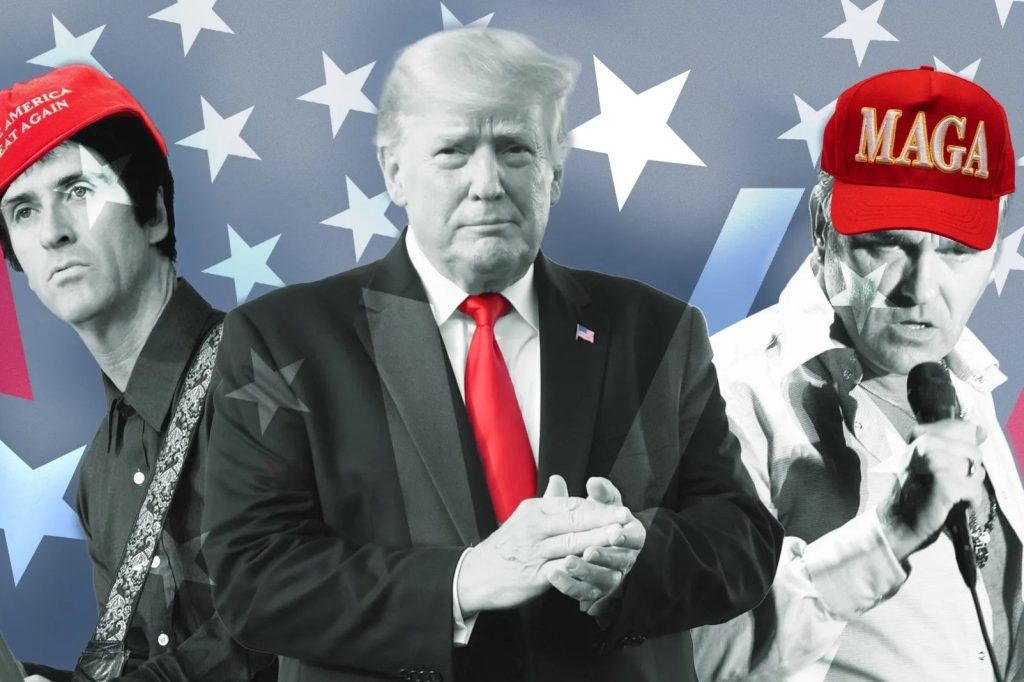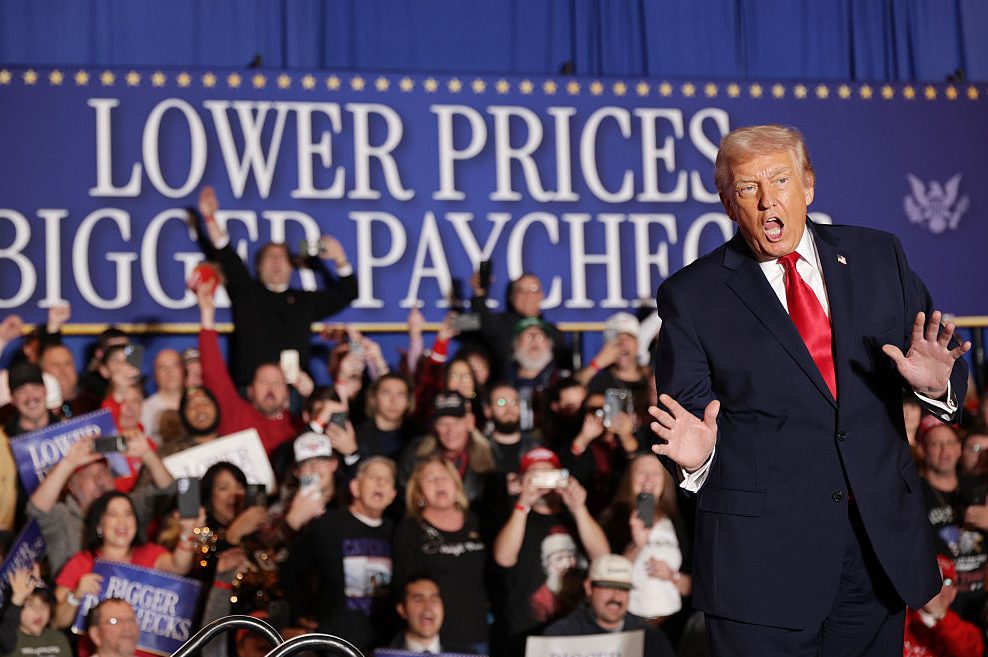Donald Trump and the Smiths make, you would think, very unlikely bedfellows. Recently a mini-kerfuffle broke out over a Smiths song — “Please, Please, Please, Let Me Get What I Want” — playing over the tannoy at a Trump rally as part of the warm-up.
Saying the unsayable, saying what we wish we could say, is a very attractive quality
Smiths guitarist Johnny Marr was certainly taken aback. “I never in a million years would’ve thought this could come to pass,” he tweeted after seeing video footage of the song being piped from a South Dakota MAGA stage. “Consider this shit shut right down right now.” (It’s unclear what he’s done to shut it down, or what power an artist has to stop this kind of use of their music.) Singer Morrissey hasn’t commented, but he has been very vocal on Trump, replying to a question by Der Spiegel in 2017 that “for the sake of humanity,” yes, he would press a button to kill Trump.
Marr and Morrissey had a similar reaction when then-British prime minister David Cameron professed his love of the Smiths a few years ago. But I think they’ve both forgotten something about the music they made together, one of the key reasons that it struck — and continues to strike, forty years later — such a chord with the listening public. For all the Smiths’s reputation as indie outsiders, they were and are a massive hit, with millions of sales and streams that continue today. They are popular. And popularity means all kinds of people are listening to you — which is surely the point of pop music.
Morrissey, both in the Smiths and in his solo career, is a highly individual artist, immediately recognizable and out on his own — but he is also highly relatable. He is, despite his public image — or rather the mistaken one of people who aren’t listening closely — an Everyman.
This is why the Smiths are a perfect fit for Trump, because they are a perfect fit for everybody. We are all to a certain extent tragic, unrequited and brimming with rage and sadness, prone to casting ourselves as the wronged heroes of our life stories. Trump’s line “I am your retribution” could be the perfect setup for a bit of signature Morrissey bathos.
I still remember the first time I heard “Please, Please, Please” back in 1984. I found it outrageous, but not in the tried and tested play-acting way of the Sex Pistols or Frankie Goes To Hollywood. It is emotionally raw, honest and utterly self-aggrandizing in the way that people are socialized out of in childhood (or, at least, they used to be then). You’re not supposed to proclaim such things in public. It is a lament of self-justification (“the luck I’ve had could make a good man bad”) laced with self-pity (“for once in my life let me get what I want — Lord knows, it would be the first time”). As with many, many Smiths and Morrissey songs, it has the nerve not to care what people will think. And saying the unsayable, saying what we wish we could say, is a very attractive quality.
So of course that is the real link with Trump. Other factors in common include anger at legal persecution and perverse verdicts (in Morrissey’s case, entirely justifiably), and a sense of grievance. Sometimes the two are combined — “Beware, I bear more grudges than lonely high court judges” Morrissey was to sing later.
There are obviously major differences too. Morrissey is full of humor, self-doubt and self-deprecation, and he is a pessimist. None of these are things you could lay at Trump’s gold-plated door. Morrissey’s words sound incendiary written down, but only because most other musicians are so very dull. He is softly spoken and never publicly angry offstage. Trump is set to a continuous, continual boil. “Oh no, what’ve I gone and done now” — a common theme in Morrissey’s work — is not something that figures in Trump’s mind at all. It’s impossible to think of a reflective Trump. Or even to picture him listening thoughtfully to music, of any kind.
But then, we routinely edit out the bits of our musical favorites that we don’t tally with. Listening to a confessional artist gives you an illusion of being their confessor, but it is an illusion. One of the most tedious mirages of modern music is the idea that enjoying art means signing up to the artist’s world view or their usually very banal political opinions. Nobody is expected to listen to Beethoven and think admiringly of Napoleon or relax to Gesualdo while plotting to murder their wife and her lover in flagrante. But we must apparently sign up to whatever some half-informed warbler thinks or they’ll be terribly disappointed in us.
“Woe is me” is universal. Every life, as George Orwell famously said, seen from within is a series of failures. It was realizing this and expressing it through music that made the Smiths so powerful and all-embracing. It’s a bit late in the day for Johnny Marr to get upset about that. And who knows? Behind Trump’s hatred perhaps there lies a murderous desire for love.
This article was originally published on The Spectator’s UK website.


























Leave a Reply